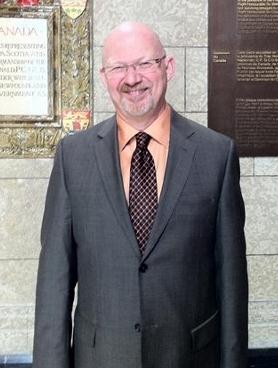An Ottawa trans activist says federal trans rights bill C-279 will likely be defeated after Conservative MPs filibustered committee debate Dec 6.
Gender Mosaic’s Amanda Ryan calls the conduct of certain MPs at the standing committee on justice and human rights meeting “blatant discrimination.”
“Rather than let 308 MPs vote on an amended bill that was agreeable to the majority of Parliament at second reading, these individuals imposed their will on the trans community,” Ryan says of MPs who, through the filibuster, ensured the continuation of already charged debate on the bill.
Conservative MPs Dave Anderson and Brent Rathgeber insisted on a more comprehensive definition of gender identity at the Dec 6 committee meeting.
“This is precisely the kind of discrimination this bill was intended to prevent. This was not about proper definitions,” Ryan says. “If they were looking for examples of discrimination to prove that this bill was needed, they need look no further than their own mirrors.”
Anderson was not signed in to attend the meeting, and a majority of committee members voted not to allow him to vote on amendments.
NDP MP Craig Scott took to Twitter and accused Anderson of “crashing” the meeting in an attempt to kill the bill. The meeting began with MPs carrying a motion to remove the term “gender expression” from the bill.
Fifteen Conservative MPs who voted for the bill at its second reading said they would continue to support the bill only if the term “gender expression” was removed or defined.
The bill’s author, NDP MP Randall Garrison, offered a definition of “gender identity” he sourced from the Yogyakarta Principles, a set of international principles relating to sexual orientation and gender identity created by a group of international human rights experts in 2006.
“Gender identity, which refers to the deeply felt internal and individual experience of gender, which may or may not correspond with the sex that the individual was assigned at birth,” Garrison said. “This is a fairly well-accepted definition of gender identity.”
Rathgeber said his main concern with Garrison’s proposed definition is the words “deeply felt.”
“This may be shutting the gate after the cows have left,” Rathgeber said, “but I would like to see some sort of objective analysis to give credibility to the claim that one has gender identity issues.”
Proving discrimination on the grounds of race, ethnic origin or sex is simple, Rathgeber said.
“With respect to gender identity I challenge the sponsor of the bill to differentiate between individuals who are genuinely in need of this protection — and I readily admit those individuals do exist — and individuals who . . . might raise it as a matter of convenience,” Rathgeber said.
“If I’m reading this correctly, all an individual has to say is, ‘Yes, I deeply feel that I have gender identity issues,’” Rathgeber later said.
Anderson said his constituents have told him they are concerned about the definitions of “gender expression” and “gender identity” and said there needs to be a longer look at what the definitions are.
“If I’m married, I’m married not because I have a deeply felt conviction that I’m married; I’m married because I actually went out and got married. I think we’re falling down here,” Anderson said. “I don’t see it as possible to support this bill unless we do a better job of these definitions.”
Garrison’s definition of “gender identity” carried, making his definition and the removal of “gender expression” the only amendments approved. Ten other amendments were dropped because they pertained to the term “gender expression” or called for a definition of “gender identity.”
Garrison motioned for an extension of 30 days to continue consideration of the bill because previous committee meetings had been interrupted. The meeting ended before the extension could be approved, which means the bill must now go back before the House — without the amendments.
Garrison tweeted after the meeting: “Some Cons filibuster to prevent amending trans rights bill in Justice . . . [Committee]. C-279 back in . . . [House of Commons] in Feb need more lobbying.”


 Why you can trust Xtra
Why you can trust Xtra


